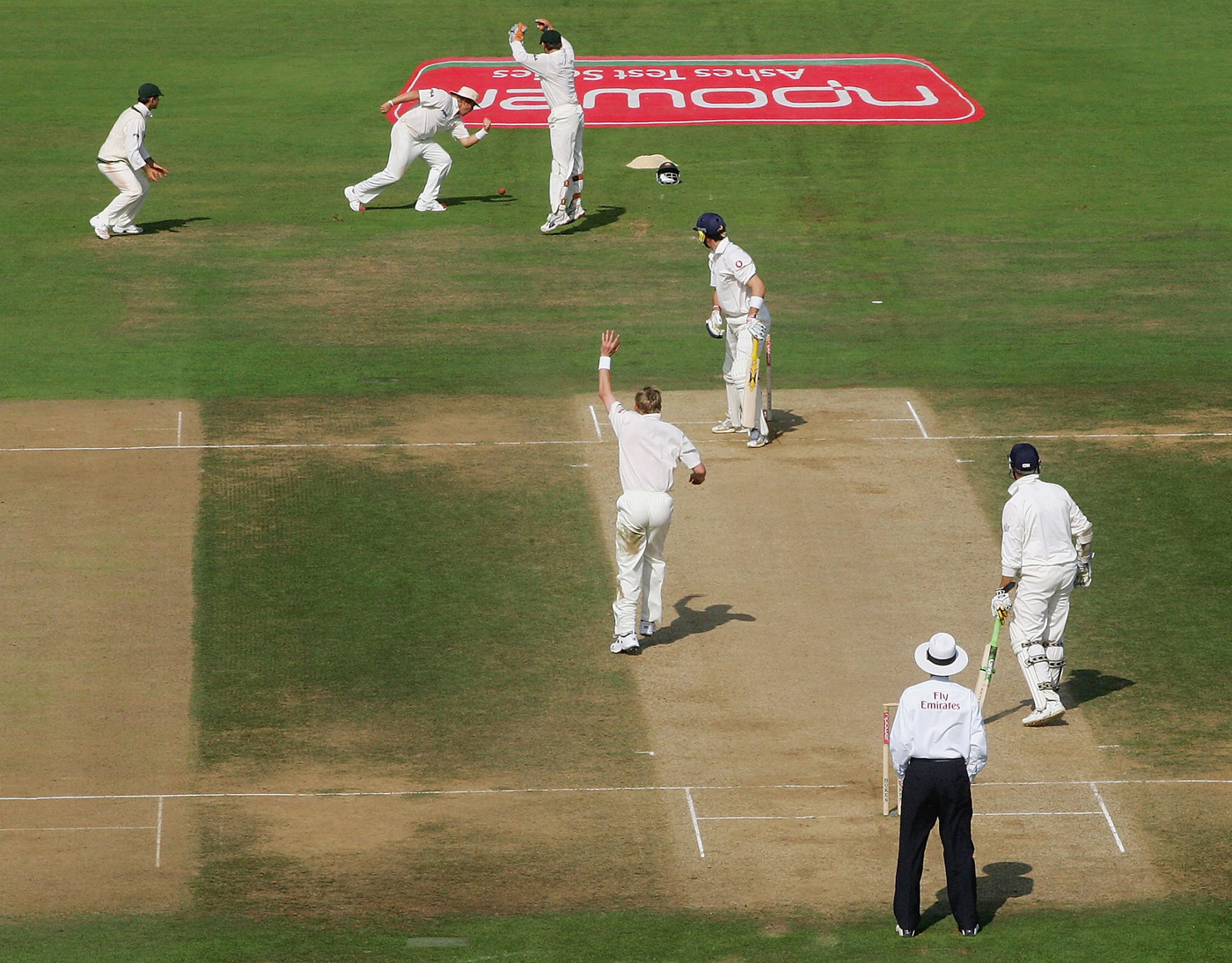Last season I was bowling at a former England player - not a common occurrence, I can assure you - when he snicked a late outswinger to first slip. A photographer freeze-famed the moment: hands cupped, the ball about to be grasped. The photographer didn't catch the ricochet off his palms, the head-in-hands aftermath from bowler and fielder. No slip catch is easy, and I felt more sympathy than anger towards my team-mate. I knew that the drop would haunt us both, two amateurs missing a rare chance to bag an ex-international.
Momentary yet lasting, the howler is a lapse of batting, bowling or fielding - and we must add but discuss no further in fear of this article turning into a thesis, the umpire howler - a singular fail that can flush an entire game, or even a series, down the drain. But no one is perfect, and no player wins every battle. Here, NFL coaching icon Vince Lombardi encouragingly reminds us, "It's not whether you get knocked down but whether you get up."
Or, if you're a gifted spin bowler, win the next series.
Just before lunch on the final day at The Oval in 2005, Kevin Pietersen edged Brett Lee to first slip. Pietersen was on 15. The catch, a ball that would be snapped up in practice, is shelled by no other than Shane Warne. Pietersen marched on to a grand total of 158 and claimed the Ashes, that mythical little urn that, along with the cricket ball, had just passed through Warne's hands.
And he was hardly the first to fail so spectacularly. In 1902, the moustachioed offspinner Fred Tate made his England debut at Old Trafford, a game that England had to win to keep the Ashes alive. When Joe Darling skied one to deep square leg, it was poor Fred who stuck out his hand and helped it to the ground. Darling's 20 more runs proved vital in a low-scoring game, a second innings in which Tate went in at No. 11 with England needing 8 to win.
Tate scored 4. He sobbed in the changing room and sobbed at the train station. Although his son Maurice would achieve England glory, his father ended his days a broken man, a publican who harangued his few customers with the tale of his infamous drop.
It may not have been a series-losing moment, but when Kings XI Punjab beat Royal Challengers Bangalore in Mohali this year, they had two players to thank: David Miller and his 38-ball century, and Virat Kohli for the top-edged skier he spilled. Victory burst through his hands, hit him in the mouth, and landed on the turf. Kohli deflected the press from his howler by saying, "It was one of the best innings that has ever been seen in the IPL." And if it helped him move on from the horror drop, then let him praise - it's better than crying all the way home, opening a pub, and then dying a pauper.
A player's conscience, whether he forgets or regrets, must affect recovery from grave mistakes. I wonder if Geoff Boycott spent sleepless nights ruing his dreadful run out of Nottingham favourite Derek Randall at Trent Bridge in 1977. As Randall trudges off the turf, Boycott covers his face with his gloves. In mock shame to appease the crowd or genuine grief, one must take his word. "I have never felt so completely wretched on a cricket field," he later wrote. And he did go on to make a ton, "the finest I have ever played", which in Boycott's world equals success, regardless of the result or run-out victim.
In a universe of infinite possibilities, Mark Ramprakash has tucked his bat under his arm, and we're leaping for joy
So, can we fully recover from a howler - without being a sociopath?
US comedian Larry David featured baseball player Bill Buckner in an episode of his hit series Curb Your Enthusiasm. Larry, after losing a baseball game by letting the ball through his legs, befriends Buckner at a memorabilia signing - where Buckner, still reviled for a similar fielding error that cost the Boston Red Sox the 1986 World Series, is sitting alone. Larry and Buckner walk the New York streets as passers-by heckle and boo Buckner, mirroring the abuse and death threats he received in life after his costly fluff. But this is TV, and David has written a heroic part for Buckner - he catches a baby thrown from a burning building before the cheering crowd hoist him onto their shoulders.
This may be fiction, yet Buckner also found peace with his howler in reality. In 1990 he returned to a standing ovation from Red Sox fans, and has since formed a double act with Mookie Wilson, the player whose hit he missed.
These examples must be a lesson for those of us who fail. And what player at whatever level can boast never-ending success? Although I have an error-strewn CV of my own - shouldering arms to a ball that took out my middle stump whilst batting to save a match must be top of the table - it's back to the drop of my team-mate that inspired this article.
My coping strategy isn't winning the following series, opening a pub, praising the opposition or moving on with a near-psychopathic ambition, but cosmic philosophy.
In a universe of infinite possibilities, on a planet where sport has conspired to pit the amateur against the professional, my team-mate holds aloft a red sphere, Mark Ramprakash has tucked his bat under his arm, and we're leaping for joy.
